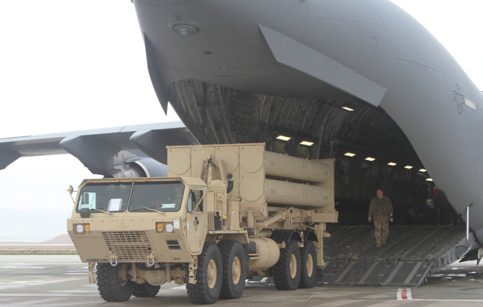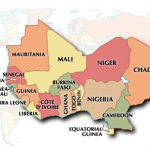The United States of America will deploy its troops to Israel to operate a missile defense battery ahead of a likely Israeli attack on Iran.
Also read; Dangote Group to begin crude oil production in 2025
In a statement on Sunday, the Pentagon disclosed that it will send an advanced anti-missile system and US troops to operate it, to Israel “to help bolster Israel’s air defenses.”
The move announced by Pentagon Press Secretary Maj. Gen. Pat Ryder marks the first deployment of US combat troops on Israeli soil since the Israel-Hamas war began last year.
According to Ryder, the THAAD battery “and associated crew of US military personnel” will be stationed in Israel “to help bolster Israel’s air defenses following Iran’s unprecedented attacks against Israel on April 13 and again on October 1.”
Terminal High Altitude Area Defense system, or THAAD is a mobile anti-ballistic missile system designed to detect and intercept ballistic missiles during their descent stage. It fires a non-explosive projectile at eight times the speed of sound, relying on kinetic energy to destroy incoming missiles.
A THAAD battery consists of 95 soldiers and six truck-mounted launchers capable of firing a total of 48 interceptors.
It is not the first time the US has deployed the system, the Terminal High-Altitude Area Defense (THAAD) battery, to the Middle East, Maj. Gen. Patrick Ryder, said in the statement.
The US deployed a THAAD battery to Saudi Arabia after the Israel-Hamas war began last October, and to Israel on a training exercise in 2019.
Approximately 100 US troops are deploying to Israel to operate the THAAD battery, according to a US defense official. It is rare for US troops to deploy inside Israel, but this is a typical number of troops to operate the anti-missile defense system.
The THAAD system is specifically meant for anti-ballistic missile defense and could help Israel better defend itself against a future Iranian attack if Iran decides to respond to any Israeli strike.
The deployment comes as Israel prepares its response to an Iranian missile attack on October 1, in which around 200 ballistic missiles were fired at Israeli military targets. Tehran maintains that the strike was a “legitimate” response to Israel’s assassination of Hamas leader Ismail Haniyeh in Tehran and Hezbollah leader Hassan Nasrallah and a senior Iranian general in Beirut.
Israel is widely expected to target Iran’s oil or nuclear infrastructure, although the US has advised West Jerusalem against either choice. Whatever form the Israeli response takes, Iran has vowed to retaliate. Earlier this week, a source in Tehran told RT that this retaliation would be “proportionate.” Should West Jerusalem target Iran’s oil infrastructure, Tehran will respond by striking Israel’s oil refineries. Attacks on other infrastructure, such as power plants or nuclear facilities, will likewise prompt retaliatory strikes on corresponding installations in Israel, the source explained.
The US military has significantly increased its presence in the Middle East since October 7, 2023, when Hamas attacked Israel. The US has bolstered its air defenses across the region, deployed additional warships and aircraft carriers to the eastern Mediterranean, Red Sea and Arabian Sea, and recently sent additional troops to Cyprus to help with possible evacuation planning.
Nnamdi Maduakor is a Writer, Investor and Entrepreneur























































